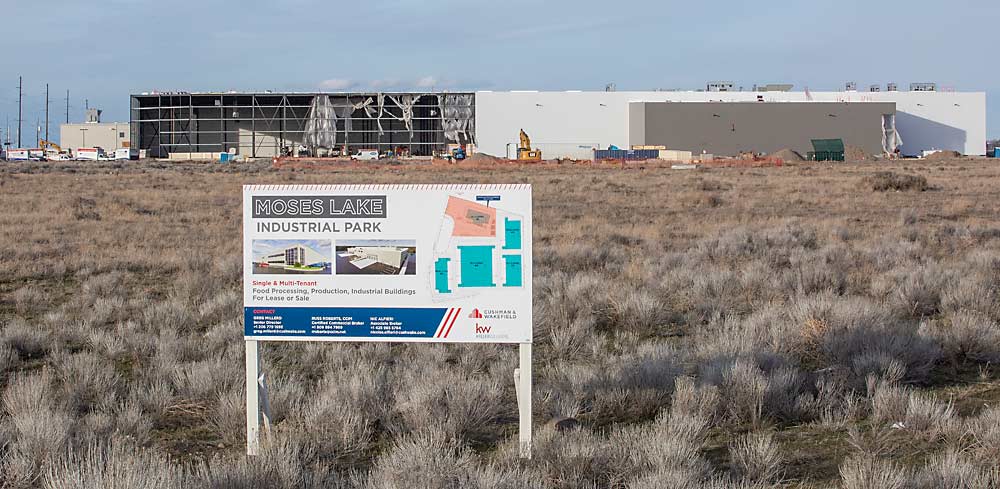
The owners of bioengineered apple producer Okanagan Specialty Fruits are building a slicing facility in Moses Lake, Washington, and continue to expand production acreage nearby.
The Summerland, British Columbia-headquartered company plans to begin using portions of the nearly 110,000-square-foot facility this spring, opening the rest by September, said Neal Carter, company president.
Okanagan Specialty Fruits uses bioengineering to silence the genes that cause exposed apple flesh to turn brown. The company markets sliced apples under the Arctic brand as bagged snacks and as ingredients for salads or fruit cups through food service companies and retail stores.
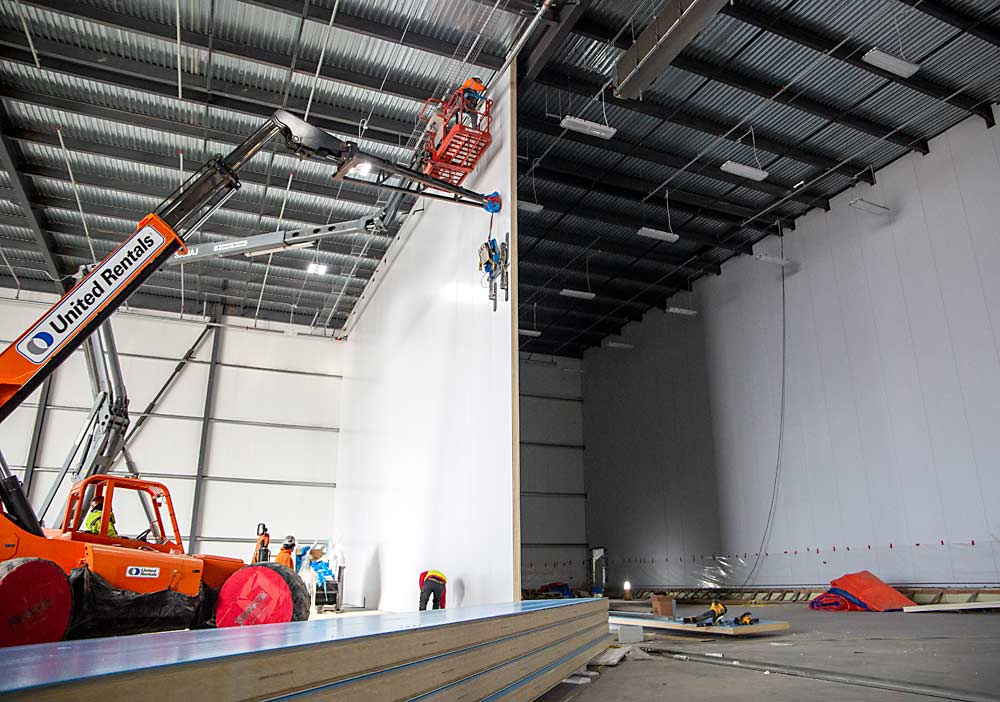
The company has trademarked the Arctic Granny, Arctic Fuji and Arctic Golden. The Arctic Honey and Arctic Gala are in production and will be added later.
An affiliate of Third Security, the Virginia parent company of Okanagan Specialty Fruits, purchased 42.5 acres of industrial property in Moses Lake near the airport. The slicing facility will use about 15 of those acres for its campus, Carter said. The affiliate will develop the rest for other forms of unrelated commercial use.
Construction costs alone are expected to reach nearly $40 million, according to Moses Lake building permits, not including the price of processing equipment. The company expects to hire about 60 people to operate the facility.
When done, the construction will feature bin storage, a pregrading room, two slicing halls with three slicers each, and automated baggers and boxers able to process 60,000 bins per year with two shifts and handle multiple varieties at one time, Carter said.
There also is room for additional construction, but the company has not yet decided on future plans.
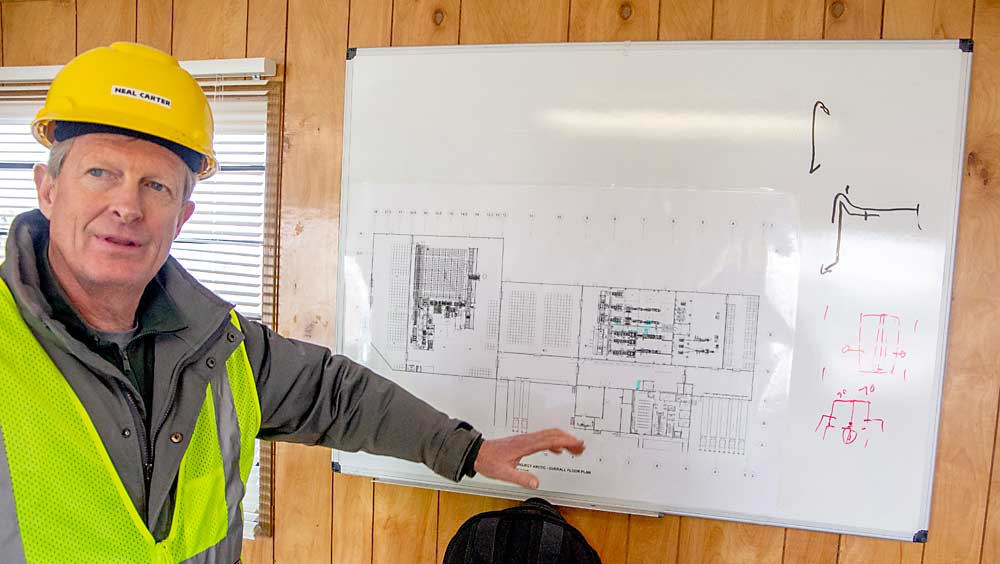
This is not the first slicing construction project for the owners of Okanagan Specialty Fruits.
Currently, the company partners with a Yakima, Washington, warehouse for storage and hauls apples to another partner in Caldwell, Idaho, for processing. To keep up with demand, the Caldwell company and Okanagan Specialty Fruits partnered to build 20,000 extra square feet of processing facility.
Okanagan Specialty Fruits has outgrown that, too, Carter said, and wants to process closer to their orchards near Royal City, about 30 minutes to the southwest of the new Moses Lake facility.
“Having apple storage and our processing all on one campus is huge in terms of transportation cost-savings and management,” Carter said.
Meanwhile, the company’s apple production continues to increase in volume and acreage. In 2022, its 1,250 acres near Royal City produced about 21,000 bins, Carter said. More acreage is reaching production, so the volume will jump to 40,000 bins this year and eventually reach 100,000 in the next two or three years.
Okanagan Specialty Fruits is also establishing a hard and sweet cider business in Wenatchee.
The company has chosen to develop in Washington, where land is more available and affordable than in British Columbia, Carter said.
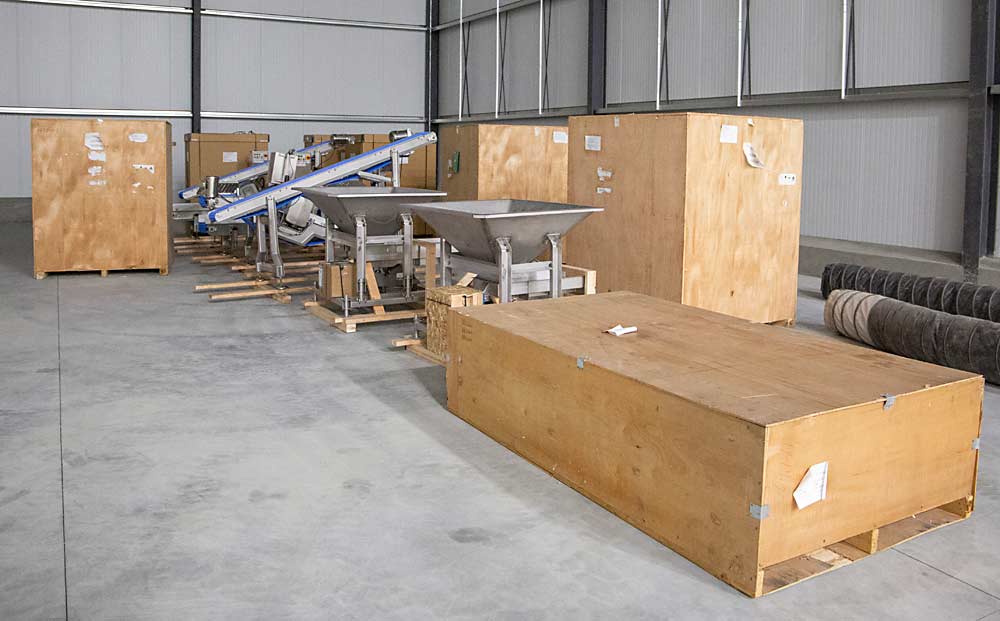
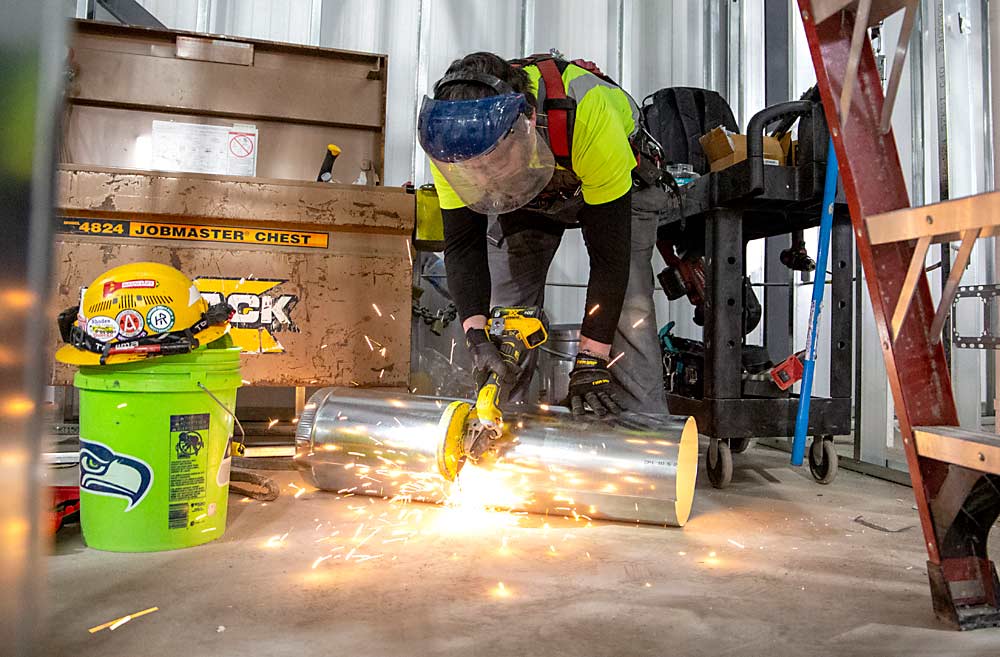
—by Ross Courtney

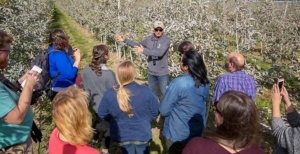





Leave A Comment